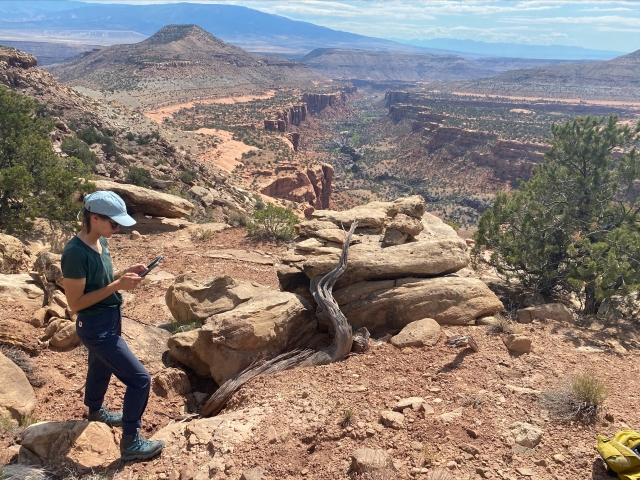A Computer Wrote This Blog
“Denver Botanic Gardens conducts cutting-edge scientific research to support plant conservation, study plant biology, and improve horticultural practices. The Gardens' research program focuses on various topics such as plant taxonomy, ecology, ethnobotany, and plant breeding. The results of this research are used to inform conservation efforts, improve horticultural practices, and enhance visitor experiences at the Gardens. The Gardens also offer opportunities for students, researchers, and volunteers to participate in ongoing research projects and contribute to the advancement of botanical knowledge.”
This is what the new service ChatGPT generated when I gave it the prompt “Write 50 words about the scientific research at Denver Botanic Gardens.”
By now you may be tired of this gimmick, but it is no doubt interesting and exciting that artificial intelligence is on its way to becoming a technology that anyone can use. And, no, I am not just trying to get out of my blog writing duties. I was curious what the technology would get right or wrong about a topic near and dear to me; turns out it is pretty darn accurate and even reads well (although it wrote 80 words, not 50).
Artificial intelligence is poised to revolutionize technology and industry, but not likely in the sensationalized “robots are going to take our jobs and then destroy us” way. Rather, it will help us make advances in fields like medicine, engineering and yes, biodiversity conservation. Soon we may be using artificial intelligence to help make predictions and evaluate methodologies to aid in protecting ecosystems. These tools can help us determine where and when species are likely to go extinct or become invasive, which restoration methods are the most effective for a given ecosystem or even which genes afford a population the tools necessary to adapt to a changing climate.
But what are scientists at Denver Botanic Gardens doing right now to make these objectives possible? Data are the life blood of artificial intelligence and every day we continue to generate and make freely available the most high-quality data describing plants, fungi and their relationships with the environment. Through collecting specimens, conducting field experiments and sequencing genes we are contributing to a knowledge base that can be used by artificial intelligence to inform its development and outcomes. So next time you hear someone going on about how artificial intelligence is set to destroy the world, remember it might also be the thing that helps save it.

A Denver Botanic Gardens scientist records data in Western Colorado.
Add new comment